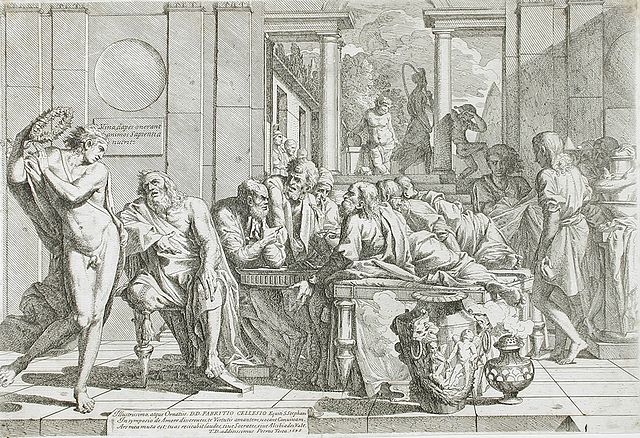
*Americas time zone*
The philosophy of Plato and his continuing tradition rests on an affirmation that reality – however that term is understood – is a systematic unity, one which embraces the extended multiplicity we see around us. It is essentially a top-down system so that the First Principle of this ‘All’ is held to be the cause of all: as Plato’s Seventh Letter poetically puts it, it is “the cause of beautiful things.”
This fundamental affirmation underpins every aspect of the tradition’s philosophy – metaphysical, ethical, psychological, and so on: for this reason, advances made by the seeker after wisdom in one area enhances his or her understanding of other areas. The seeming difficult complexity facing us as we contemplate the great sweep of philosophy is thus, perhaps, less daunting than might otherwise be imagined. One of the great keys to the serious cultivation of Platonic wisdom is triadic thinking: once one begins to look at texts of both Plato and the Platonists of late antiquity (“Neoplatonists”) it becomes clear that triads abound.
We will look at a few examples in this short paper, which is designed to be an introduction to the concept of triads in Platonic philosophy as a technique for learning. We hope that this will form the basis of an interesting evening’s discussion – it is, of course, very far from an exhaustive treatment of the subject, but leaves space for participants to explore this usually neglected area.
These open sessions usually run twice on the same day to accommodate different time zones- but this time will be on separate days (16th UK, 23rd Americas). For the UK time zone session on 16th, please go here. These sessions take particular topics or passages from Plato and other writers in the tradition – these are open to anyone interested, and they attract a wide range of participants. We usually begin with a short 5 or 10 minute introduction to the subject in hand and (when appropriate) a reading of a short text: this leaves a good hour or so to discuss the ideas which arise. We will also run this session in London nearer the end of the month.
These open sessions take particular topics or passages from Plato and other writers in the tradition – these are open to anyone interested, and they attract a wide range of participants. We usually begin with a short 5 or 10 minute introduction to the subject in hand and (when appropriate) a reading of a short text: this leaves a good hour or so to discuss the ideas which arise. This session will be led by David Nowakowski and Kaye Boesme and begins at 7.30pm EDT.
There are no fees payable. The Trust sees the Platonic tradition as a spiritual one: not only a guide for the outer life, but especially to be treasured for its assistance in the cultivation of the inner self – the soul – for, says Plato in the Timeaus, “we are not terrestrial plants, but blossoms of heaven.” We understand the tradition to be profound and cohesive, and one that repays the long-term effort required to truly embed oneself in it. Our approach is not exclusive – we value other traditions for their insights – nor is it dogmatic or an attempt to proselytise: however we are serious in our attempts to fathom the depths of the tradition, to identify its foundations, and where its teachings seem to run counter to accepted thinking to investigate them thoroughly rather than rejecting them prematurely. Thus our point of focus is on the teachings of the tradition and most especially our own inner response to them.
By joining our studies you are making no commitment beyond that of co-operating with us in our exploration of those truths which have inspired a company of men and women most luminous in their understanding, and unsparingly generous in their teaching.
You can register via zoom by clicking on the here.
